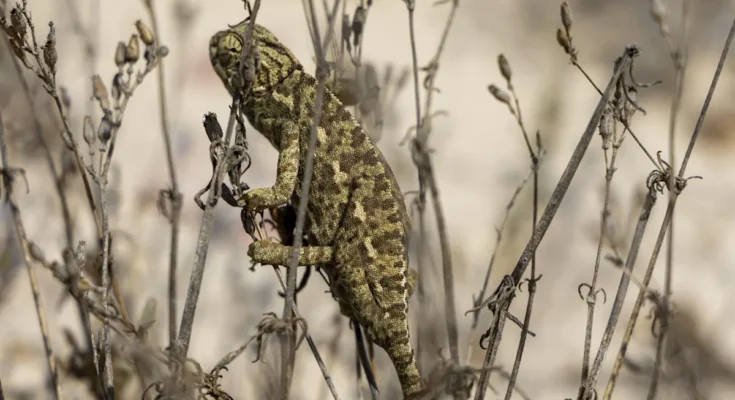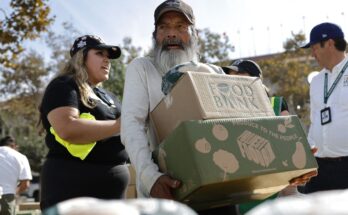Record cold temperatures on the US East Coast. The onset of winter with frost and snow even hit Florida. The iguana was shocked and fell from the trees.
The first major cold snap of the season sent temperatures across the southeastern United States hitting record lows, scaring 18 million people in Alabama, Florida and Georgia. A frost warning is in effect for them. Several centimeters of snow covered much of the southeastern states.
Arctic air moves in, bringing cold and snow overnight. For much of the Southeast, this marked an abrupt transition after temperatures hit 27 degrees in previous days. Jacksonville is now reporting a temperature of minus two degrees.
National Weather Service meteorologist Scott Kleebauer warned people in Florida about falling iguanas. They will sit in trees and freeze to death in temperatures below four degrees, Kleebauer said. “Iguanas, because of their reptilian nature, go into survival mode and their systems basically shut down,” Kleebauer said. “They’re not used to temperatures like that. They only experience them a few times a year, or even at all.”
“Otherwise, autumn will slowly come”
The first post has appeared on social media indicating that a Florida resident found a dead reptile. “Otherwise, autumn will slowly come and winter will come at some point,” Kleebauer said. “This time it was different – it was warm for a long time and then suddenly the organism was surprised at how cold it suddenly was.” Even in southern parts of Fort Lauderdale and Miami, temperatures dropped below 7 degrees Celsius in the morning.
Cross country skiing in West Virginia
There have been dozens of accidents in West Virginia due to snow and ice. More than 37 centimeters of snow had fallen, and some people were taking advantage of it for cross-country skiing. New snowfall is expected on Wednesday.
The sun-drenched west coast will also experience heavy rain and even snow in the mountains. A large cloud of moisture forming over the Pacific Ocean will cover San Francisco starting Wednesday before moving south toward Los Angeles. Meteorologists warn that heavy rain cannot be properly absorbed by land burned by forest fires. More than 30 centimeters of snow is expected in parts of the Sierra Nevada.
AP/from



